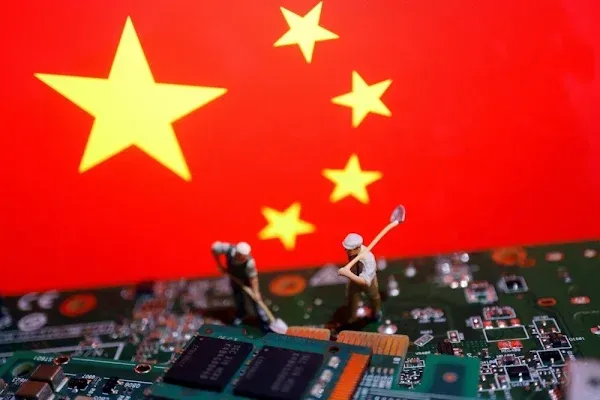Power Shift in China's CPU Market: Is the Tide Turning Against Intel
Intel has long dominated the world CPU market, including China. But reports now suggest a dramatic shift is in the pipeline. Are we witnessing a changing of the guard in one of the world's most important tech markets It appears AMD is making serious inroads, and a new Chinese semiconductor policy could further reshape the landscape.
AMD on the Rise as Intel Struggles in China
It's no secret that Intel has been under pressure recently. Performance bugs with new CPU generations, and even issues like stability problems, seem to be eroding consumer confidence. According to Board Channels Forums reports, this is playing out on a grand scale in China. A former stronghold for Intel, the Chinese CPU market is said to be witnessing a wave of AMD adoption.
The latest Intel "Core Ultra 200S" Arrow Lake series, designed as a flagship product, did not appear to live up to expectations. Performance was said to be disappointing, damaging Intel's reputation among Chinese consumers. Efforts to remedy this with firmware updates and microcode patches also seem to have been for naught. Contributing to the issue, earlier Raptor Lake Refresh CPUs had instability problems, making consumers nervous and look elsewhere for more stable options.
Enter AMD. With their latest Zen 5 architecture, behind the Ryzen 9000 series and their more recent X3D CPUs, AMD is moving into Chinese consumers' hearts. Reports indicate AMD has already captured an astounding 50% of China's market in the first quarter. If the trend continues, AMD could be headed towards winning the top CPU vendor spot in this strategic market – a potentially crippling setback for Intel's global business.
intel's traditionally dominant region China, intel motherboard sales have also lost their edge...https://t.co/BzqLy6aoCN pic.twitter.com/E1dyw4Pg6y
— HXL (@9550pro) April 11, 2025
China's New Chip Policy: Is It a Game Changer
Adding another layer of complexity, China introduced a new policy on semiconductors through the China Semiconductor Industry Association (CSIA). In the midst of persistent trade tensions, the policy seems to be designed to promote China's domestic supply chain and potentially favor some chipmakers in the world over others.
At the center of the policy is the definition of the "country of origin" for semiconductor products, namely packaged and unpackaged chips. Perhaps most crucially, chips made in Taiwan can be exempt from tariffs – tariffs of up to 125% for chips made elsewhere. It's a potentially enormous windfall for companies like NVIDIA, AMD, and Apple, which rely so heavily on Taiwanese producers like TSMC for making chips.
Such a policy would have significant implications for US chipmakers like Intel and GlobalFoundries. Chinese companies might be persuaded to shift their supply chains to Taiwanese producers to avoid tariffs, potentially lowering American chipmakers' influence in China. One can't help but wonder if the world's tech companies will have to make strategic choices about where they produce and where they ship their products amid these shifting geopolitics and trade realities.
What Does It All Mean
The combination of AMD's rising popularity in China and the introduction of a new, hopefully preferential semiconductor policy paints a rich picture. It suggests Intel struggling to get its footing in a prime market, as well as AMD gaining both performance and perhaps beneficial policy shifts. The long-term implications of these breakthroughs to the worldwide CPU market as well as to the semiconductor industry as a whole only time will tell, but one thing it is sure: the landscape is evolving and things are heating up.


